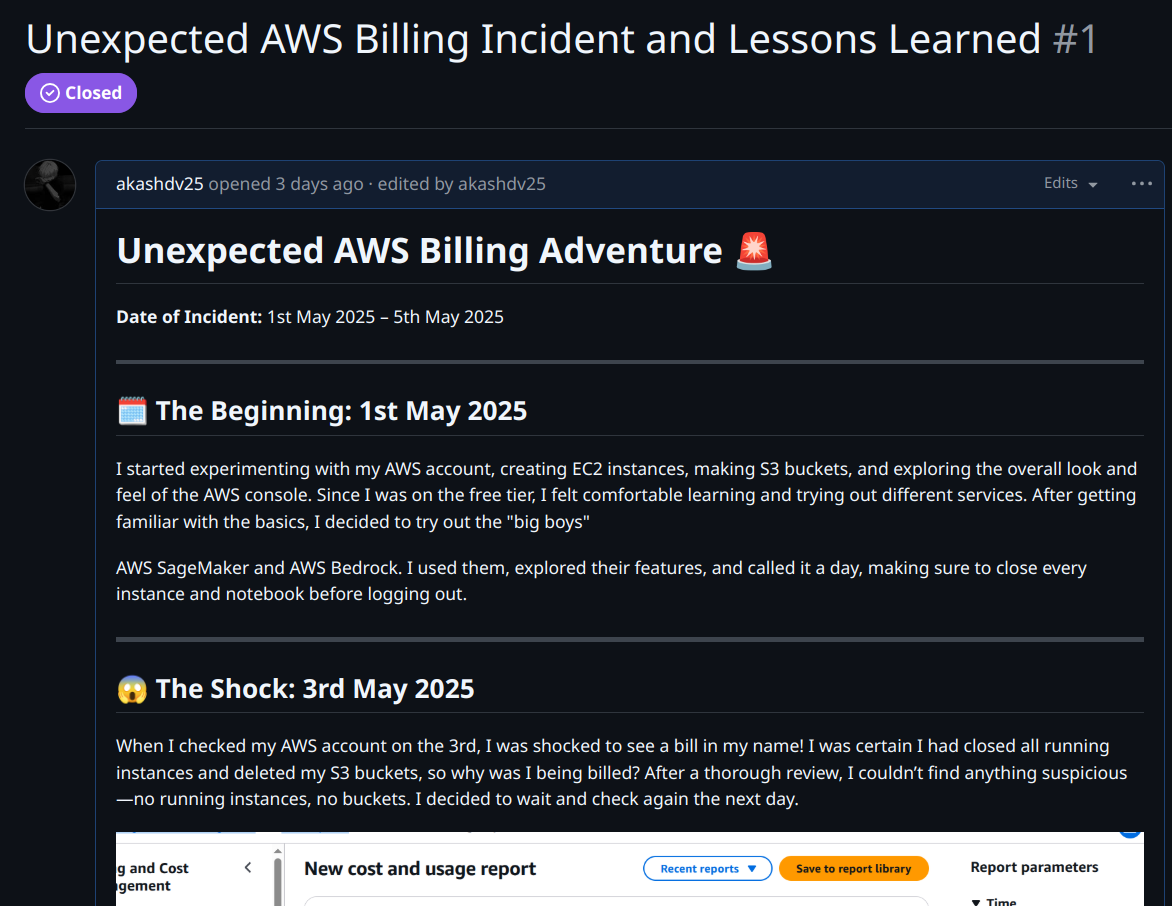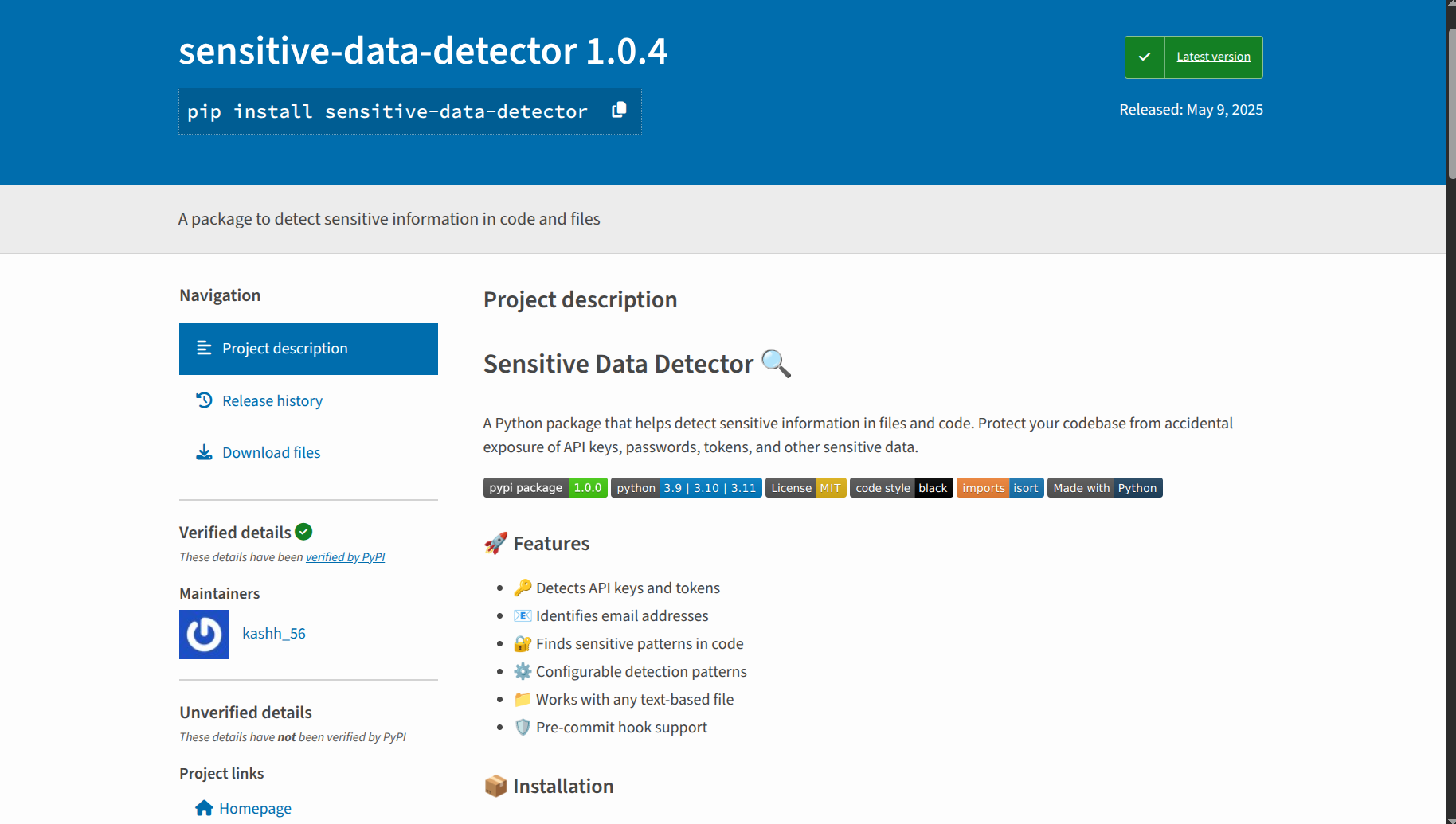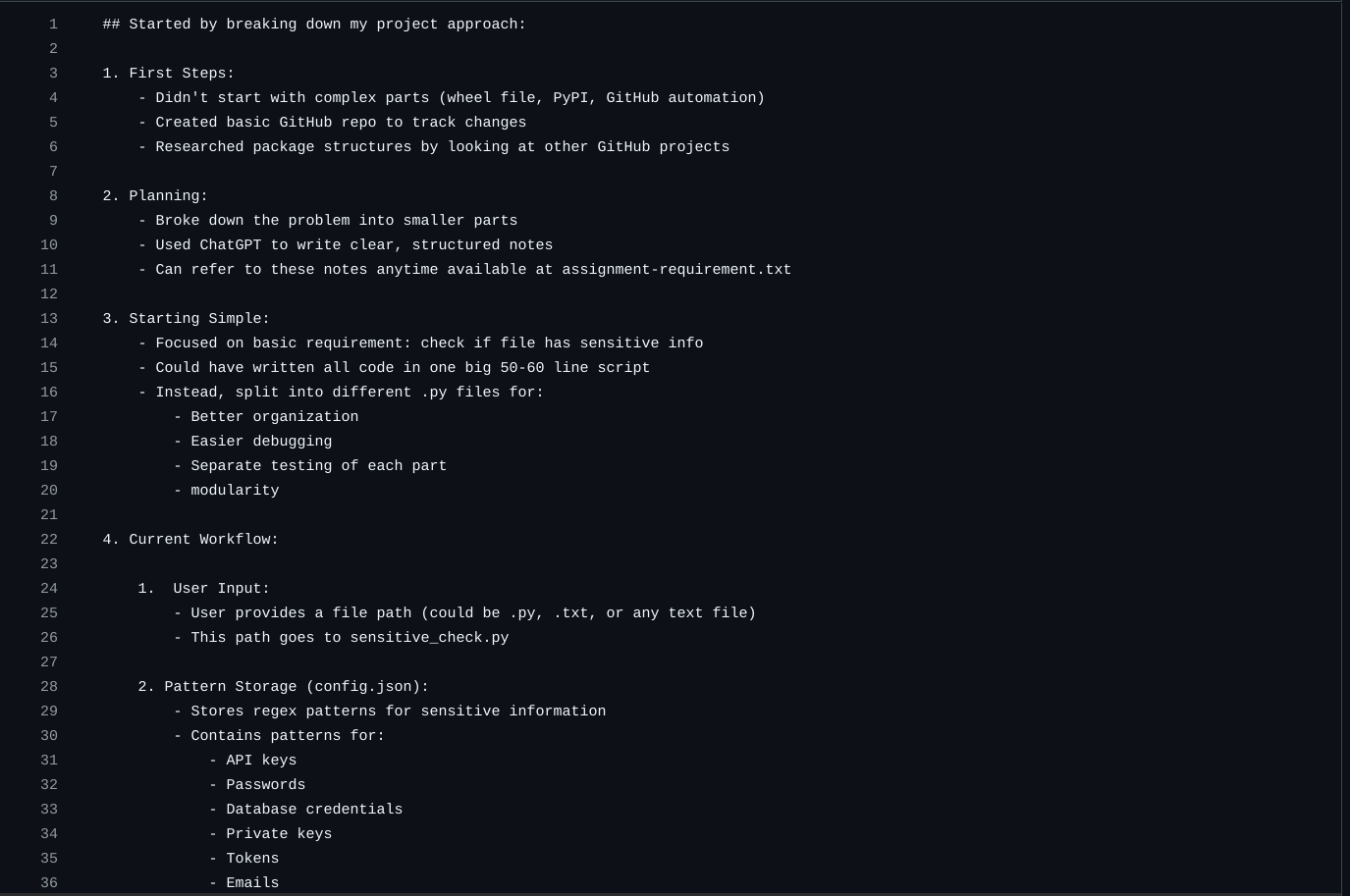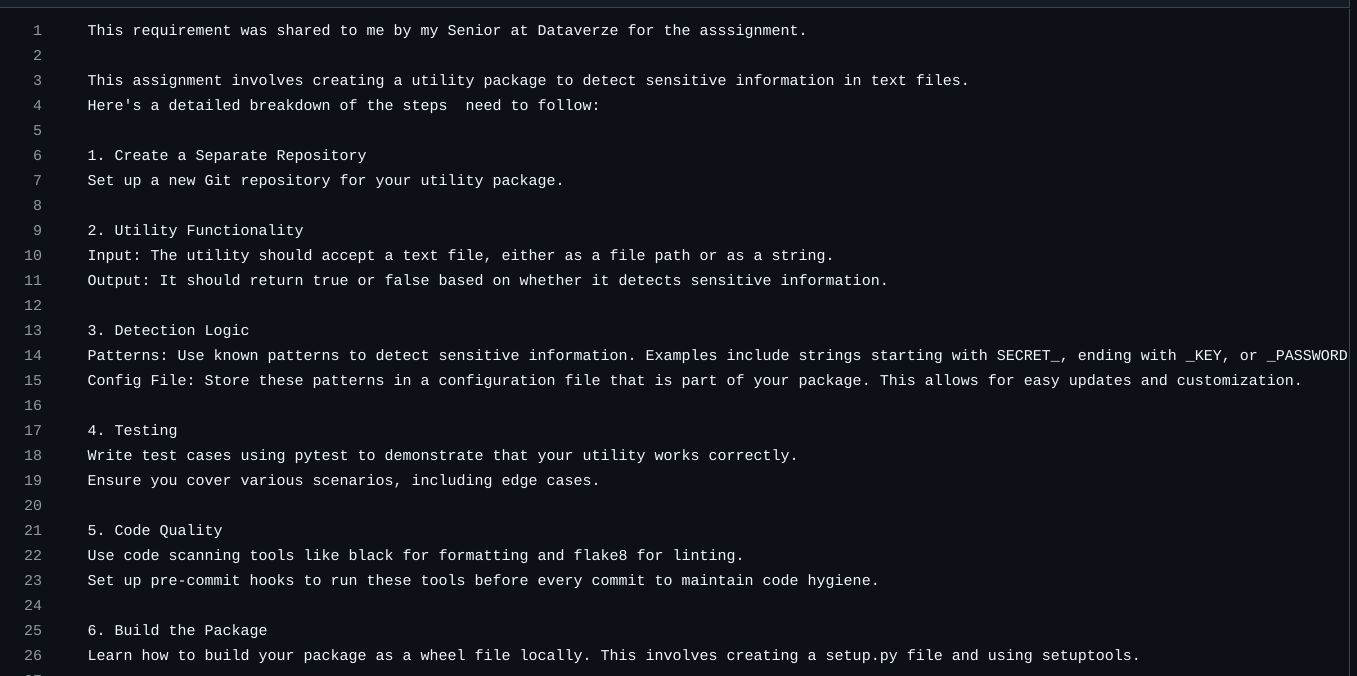status-updates
Week 3 Status Updates
Monday: Let’s Get Started! 😎
Morning Session ⚡
- Sandeep Sir’s PySpark Assignment:
Went through the use case and started working on the assignment. It was a great way to dive into PySpark and understand its practical applications. Researched some notebooks and the apt use case for the same
Afternoon Deep Dive 💡
- Amit Sir’s Project Breakdown:
Broke down the project into smaller, manageable chunks. Created a clear project structure and started working on building the package. It’s still a work in progress, but the foundation is set!
Evening Exploration 🔍
-
Python Package Research:
Surfed through various Python package repositories to get ideas and inspiration. It was helpful to see how other developers structure their projects and manage dependencies.
Overall, it was a productive day heavy on research can’t wait to start coding 🌟
Tuesday: Building Knowledge 📚
-
Explored PySpark and DataFrames:
Today, I learned about PySpark, a powerful tool for big data processing using Python. I understood what DataFrames are in PySpark—they are like tables in a database, making it easy to organize and analyze large datasets. -
Dived into PySpark SQL:
I discovered how PySpark SQL lets you run SQL queries on your data directly within PySpark. This is super helpful for filtering, grouping, and transforming data using familiar SQL commands. -
Mastered DataFrame API Syntax (Window Functions):
I focused on the syntax of the PySpark DataFrame API, especially window functions. Window functions allow you to perform calculations across a set of rows related to the current row, which is useful for tasks like running totals, moving averages, and ranking. -
Completed PySpark Assignment:
I finished my PySpark assignment, where I applied what I learned about DataFrames and window functions. I explained my approach, and provided a link to my exploratory data analysis (EDA) for reference.
-
Discovered GitHub Issues:
I learned how to use the GitHub Issues feature to track and document problems or events. I created a detailed issue about my unexpected AWS billing experience, describing what happened, how I investigated, and the steps I took to resolve it.
-
Basics of Operating Systems (Processes, Cores, and Threads):
I also explored some operating system basics. I learned what processes are (programs running on your computer), what CPU cores do (the brains that run your programs), and how threads allow a program to do multiple things at once.
Another productive day full of learning and hands-on experience! 🚀
Wednesday: Midweek Development
Diving deeper into technologies.
Morning Knowledge-Sharing Session 📚
Our team gathered for an comprehensive discussion about distributed computing, with valuable insights from everyone:
Big Data Fundamentals
- Kanchan and Udit kicked off by explaining big data basics
- Discussed the evolution of data processing needs
- Explored how big data changed the computing landscape
Distributed Computing History 🕰️
Sandeep Sir and Amit Sir guided us through:
- Storage Evolution:
- The initial challenges of distributed computing
- How storage and compute separation affected performance
- Impact of network I/O bottlenecks on data transfer
- Comparison between HDD and SSD performance implications
HDFS Deep Dive 🗄️
Learned about Hadoop Distributed File System (HDFS):
- Architecture Components:
- NameNode: Manages metadata and system coordination
- DataNode: Handles data storage and reporting
- HeartBeat mechanism for node communication
- Fault tolerance and scalability features
- Data Management:
- Block size considerations in HDFS
- Data replication strategies
- Distribution across clusters
- Single point of failure considerations
MapReduce & Resource Management 🔄
Explored the fundamentals of distributed processing:
- MapReduce Framework:
- Programming model for parallel processing
- Job execution flow and stages
- Role of JobTracker and TaskNode
- YARN (Yet Another Resource Negotiator):
- Job orchestration mechanisms
- Resource allocation strategies
- Cluster management capabilities
Data Storage Evolution 📊
Discussed different data storage paradigms:
- Databases
- Data Warehouses
- Data Lakes
- Their roles in modern data architecture
AWS Billing Resolution Call 📞
Great News: Received a call from AWS Support regarding the unexpected billing issue!
Call Details 💬
- Explained the complete timeline of events:
- How I was experimenting with various AWS services
- The discovery of unexpected charges
- My investigation process and findings
- Steps taken to terminate all running services
- The thorough cleanup of resources (NAT Gateway, Elastic IPs, SageMaker domains)
Key Points Discussed 🔍
- Missing Notifications:
- Highlighted that I didn’t receive the zero-budget bill notification
- This was crucial as it could have alerted me earlier about exceeding free tier limits
Support Representative’s Response 🤝
- The support representative seemed puzzled by the situation
- They noted:
- The complexity of interconnected services
- The absence of budget notifications
- My proactive approach in investigating and resolving the issue
- After reviewing all details, they decided to approve a waiver for the charges
Resolution ✨
- Full waiver approved for the unexpected charges
- For more details, check out my detailed documentation here: AWS Billing Incident Report
Evening Project Kickoff 🚀
Python Package Assignment
Started warming up for Amit Sir’s assignment:
- Project Goal: Create a professional Python package
- Initial Phase:
- Understanding package requirements
- Researching package structure best practices
- Planning the development approach
Ended the day by laying the groundwork for tomorrow’s development 📦 ✨
Thursday: Implementation Day
Python Package Development Marathon 🏃♂️
Project Completion 🎯
Dedicated the entire day to completing the Python package assignment. It was an intensive learning experience!
Technical Implementation 🛠️
- Worked with crucial package components:
setup.pyconfigurationegg_infopackage metadata- CI/CD workflows implementation
- Package distribution setup


Documentation & Resources 📚
-
Detailed Documentation of development journey: Project Documentation Link

-
Issue Tracking: GitHub Issue - Development Challenges

-
Additional Resources: Project requirements

-
Project Github repo link: - sensitive_data_detector

-
PyPi link: - sensitive_data_detector
Key Learnings 💡
All the challenges, solutions, and implementation details are thoroughly documented in the GitHub repository. Check out:
- Package structure best practices
- Development workflow
- Common pitfalls and solutions
- CI/CD pipeline setup
A full day of coding, learning, and documentation! ✨
Weekend: PySpark Flight Data Analysis Project

This weekend, I worked on an exciting PySpark project analyzing flight data! Here’s what I learned and accomplished:
Project Overview
- Created a data analysis project using flight data from 2015
- Built the entire project using PySpark for big data processing
- Made my Jupyter notebook look really nice with clear sections and explanations
Technical Skills Learned
- Repartitioning in PySpark
- Learned how to better organize data across partitions
- Used repartition() to control how data is split up
- This helps make my queries run faster
- User Defined Functions (UDF)
- Created my own custom functions in PySpark
- Learned the proper syntax for UDFs
- Used them to create new columns and transform data
- Also compared them with native pyspark functions and got to know how they are slower than normal pyspark functions
- Broadcast Joins
- Discovered how to make joins more efficient
- Used broadcast joins when joining large and small tables
- This really helps speed up my data processing
Data Analysis
- Analyzed flight delays across different airlines
- Found interesting patterns about which airports have most delays
- Worked with a large dataset and learned how to handle it efficiently
Project Structure
- Organized my code properly in different files
- Created clear documentation
- Made my notebook easy to read with good markdown sections
- Added comments to explain complex parts of the code
You can check out my project here: PySpark Flight Data Analysis
This weekend project really helped me understand PySpark better and improved my data analysis skills!
👋 Sayonara! See you next week for more exciting learning adventures! ✨